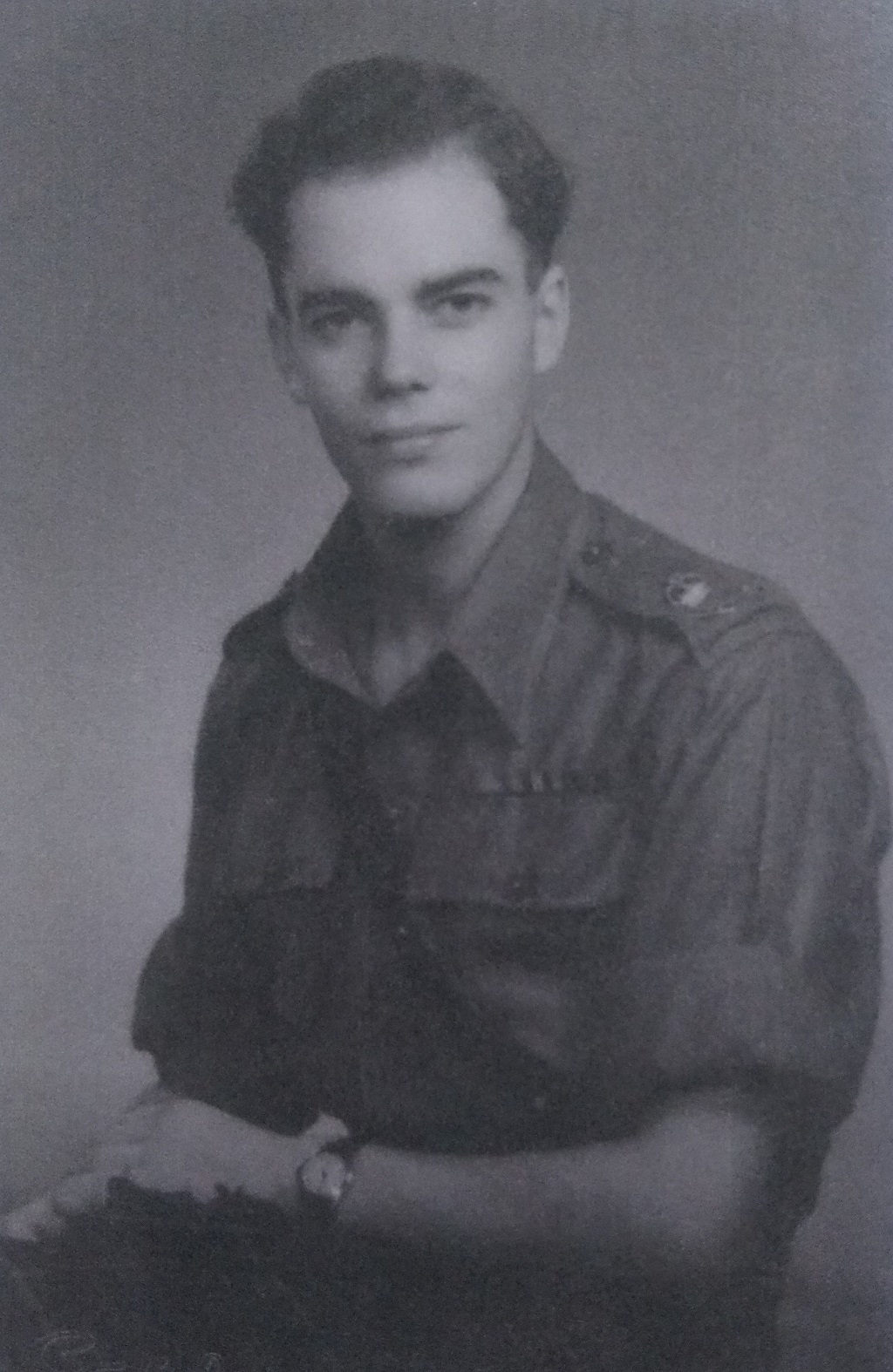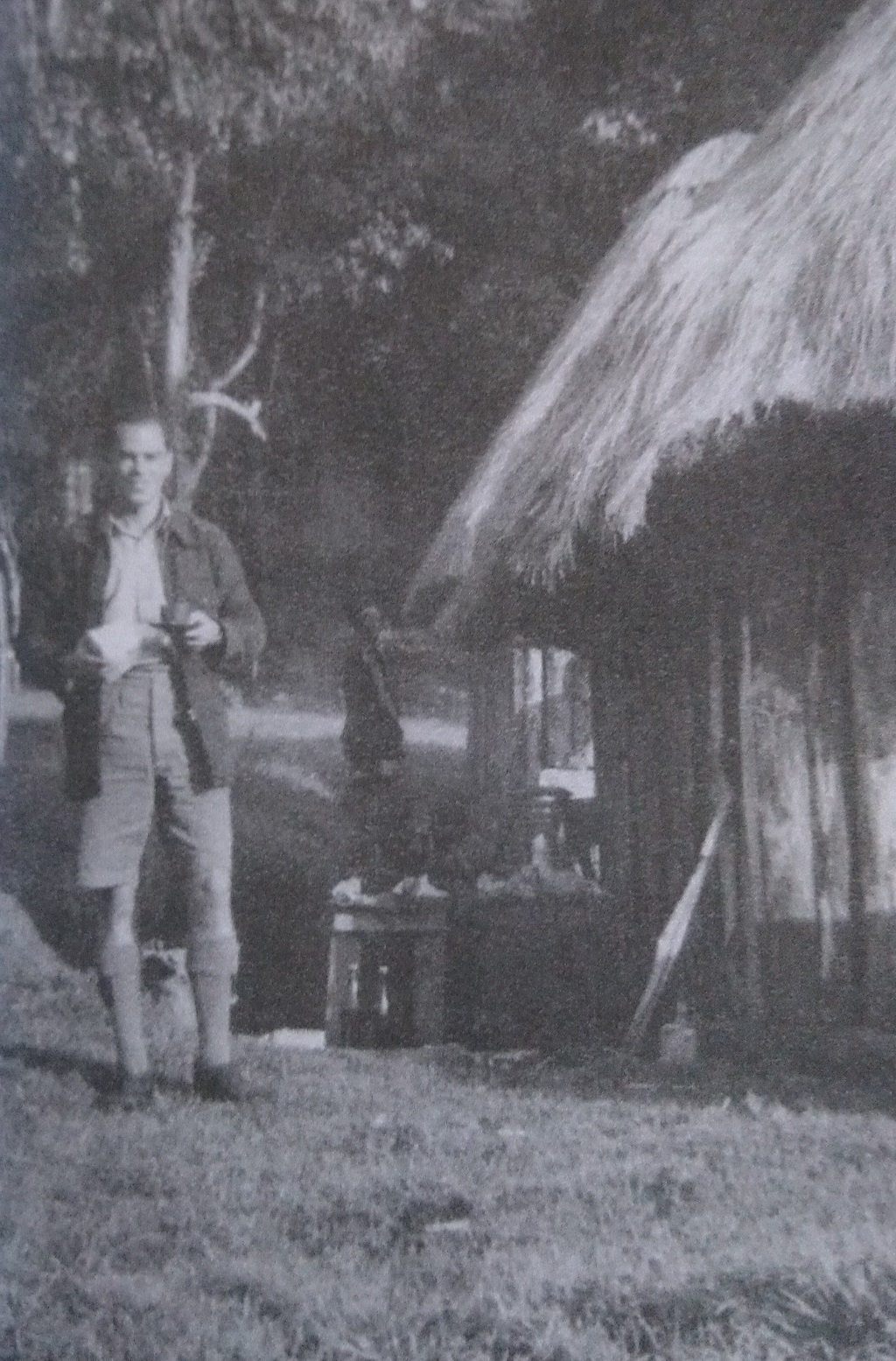They say that the past is another country – so that must go doubly so for Last Bid for Freedom – An African Journey.
The book was written by Ronald Macduff Urquhart, an accomplished Edinburgh lawyer, during his travels through Africa between 1951 and 1952. Amazingly, he wrote up his journal of his exploits at the time, but it was never published.
His family were aware of the work, and now, after sitting in a dusty attic for 66 years, it has finally been privately published.
Discovering the book again was a labour of love for the late Ronald’s son Roderick, who continues a proud family legacy at Urquharts Solicitors, based in Edinburgh’s New Town, since 1876.
Roderick said: ‘My father, when he got back from his African travels in 1952, wrote up the book, Last Bid for Freedom, and, we suspect, tried to have it published. We suspect the reason it may not have been was that after World War II, paper was being rationed.
‘My brother Charles and I recently thought that there was a very good story in it, a very unusual story, and we felt we should get it printed for the family. Rather sadly, after he wrote it, it sat in my parents’ attic.
‘My father, Ronald Urquhart, had a very bad stroke in 1982 and never worked again. He didn’t talk a lot about his trip to Africa, but Charles was in his 30s and decided he would like to follow in father’s footsteps and set out out to West Central Africa. That gave him a fresh enthusiasm.

Ronald Macduff Urquhart
‘After a couple of years, we thought that time was marching on, and we should get it printed. I only relatively recently read it from cover to cover – what an extraordinary story!’
Ronald attended Loretto School, before reading law at Trinity College, Oxford, from 1942-44, before joining the 1st Battalion of the Saeforth Highlanders, serving in India, Malaya, Java, Singapore, Siam, the Strait Settlements, Ceylon, Aden and Port Said.
He returned to Edinburgh for his honours degree in law, before travelling to Canada, where he hitchhiked from coast to coast.
From 1950-51, Ronald qualified as a solicitor, gaining experience in Perth, before qualifying with Urquharts.
Then, in 1951, Ronald headed to France and Spain, then Morocco and Algeria, before heading to Nigeria, travelling through countries such as Senegal, the Ivory Coast and Ghana.
As he mentioned, Ronald rarely discussed the exploits of his youth. Roderick explains: ‘Occasionally he would talk about his African trip, but he was a busy lawyer, a third generation, after his grandfather set up the business in 1876, as A&M Urquhart. He was always a busy solicitor, with four boys at home, and we weren’t often listening to his stories. It wasn’t talked about a huge amount, or his experiences in the Far East during the war, an episode of his life which had passed by.
‘We knew the book was in the attic – but it sat there for years and years.
‘As a father, he was a relatively easy-going individual, and we got on well – we didn’t row. What the book has shown is that he was very focused and quietly determined. When we read about about what he got up to, I can say that he was amazed he went on to achieve what he set out to achieve and did, as regards his travels. One or two parts show he wasn’t frightened of a challenge, and it was a very fulfilling time for him.
‘He travelled fourth class from Algiers and he went up on deck on a ship, where he set up a little corner. He didn’t think food and drink was included in the fare, so he would bring a little food and make it last – it turned out after a few days that it was actually included! He was asked why he was buying bread!
‘There’s no getting away from the fact that the most fascinating part of the book is that part where he’s living in the Eastern Congo in the Ituri Forrest, with Patrick and Anne Putnam, who were anthropologists, on the edge of pygmy camps.
‘The book says that the pygmies were owned, and reading it, it seems like the old Scottish feudal system. The pygmies would provide and hunt for their masters, and they in turn provided the metal tips for the spears when hunting.

Ronald Urquhart on his African adventure
‘Father had a natural affinity to get on with people. In many ways, he was a typical Scot in a foreign land – there was an openness and interest in the individuals he met.’
‘My favourite part of the book is where he’s setting up his chessboard, by the side of the road, to be served tea. He’s very respectful of the people he meets, and that comes over from the text – he was genuinely grateful for the lunch.’
In the 21st century, travel all over the world is easily accomplished, but Roderick points out how difficult things were for his father: ‘You read about individuals these days, particularly in their 20s, who go on gap year trips around the world – I’ve got three children and two of mine did that. But it’s very different from how my father did it. Nowadays, it would be so much more difficult to cross through the countries father did! You couldn’t pass through some of the countries he did.
‘Central Africa has its difficulties with civil war, but we now have cheap air travel, which makes things a lot more possible.’
Like his father, Roderick is a former pupil of Loretto School and has held the office of President of the Lorettonian Society and three years ago was appointed a Deputy Lieutenant of East Lothian.
And Roderick admits that, although his father passed away in 1992 aged just 68, the book has helped him get to know him better: ‘It has taught us and told us a lot about our father which we didn’t know before. He was just 57 when he had his stroke, and life change from that moment onwards for him. I started with the company in September 1982, so I just missed working with him, by four months.
‘I think he would be pretty proud that it’s been printed – he wasn’t a man for banging his own drum about his achievements in life. This is a piece of his past and we have it to hold onto and cherish now.
‘It has been very special for us – we’ve gone from a foolscap book to a printed, bound volume. Father didn’t really write much – he wrote a piece for the Scots Magazine when he was travelling in Canada – but he was always good for an after dinner ditty.

Roderick Urquhart, with his brother Charles, worked hard to have their father’s journal published
‘Had this book been a straight-forward tale about crossing Europe, we wouldn’t have been so excited.
‘The whole time, it seems money is against him, but he doesn’t seem phased by it. At one point, he’s getting one meal a day, so a buys a hand of bananas on a stalk and has a meal of rice and something, with four bananas a day.
‘Some of the comments from those who have read it have said that it’s an amazing story. I’ve a cousin, who works for The Economist in London, who was fascinated by it. We’ve had 50 copies printed for the family and sent them to relatices and close friends.
‘It’s a book you can pick up and dip into, put it down and come back to it again – it’s an extraordinary story.’
Click HERE to find out more about Urquharts.
- Last Bid For Freedom – An African Journey, by Ronald Macduff Urquhart, has been privately published.
TAGS

